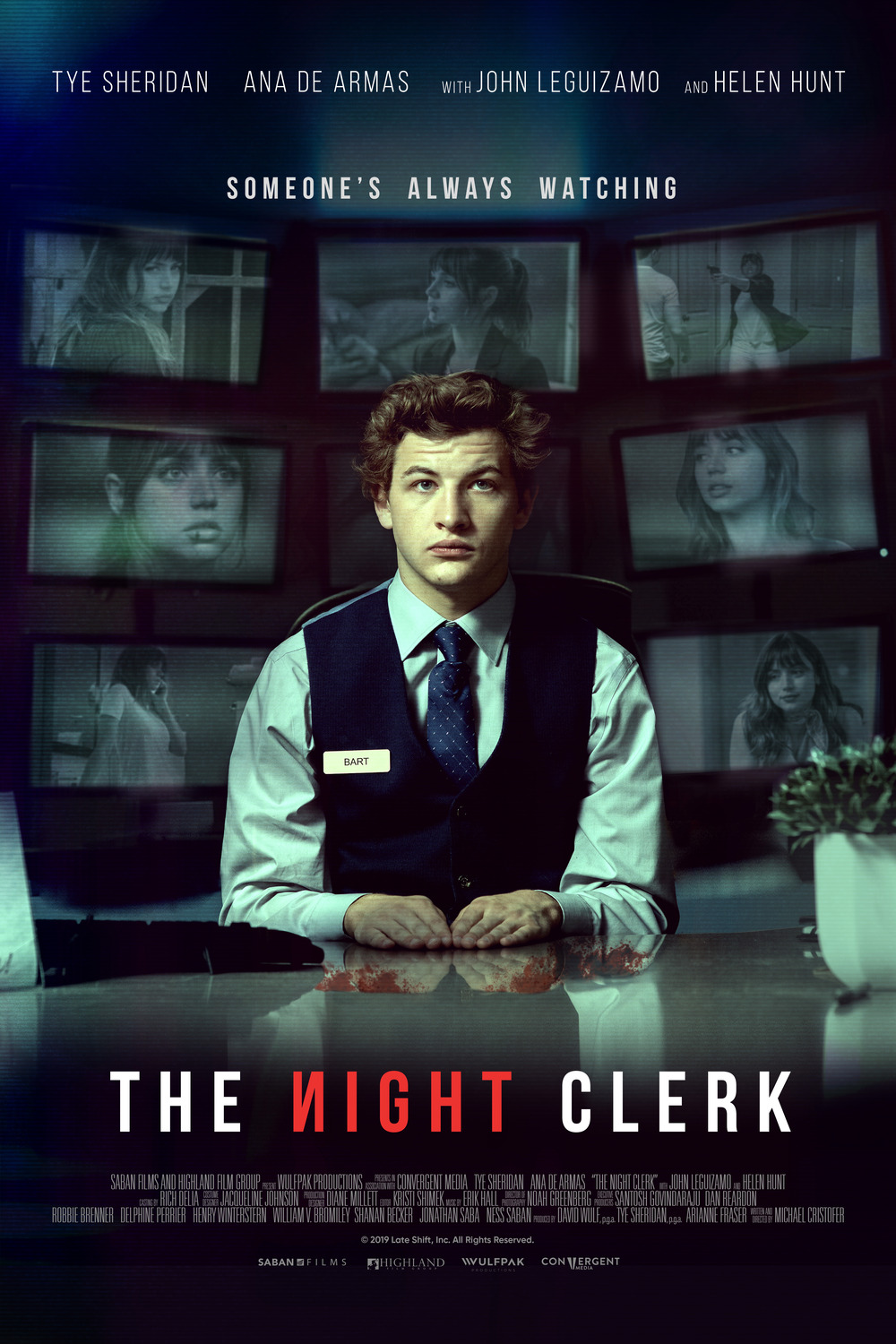Michael Cristofer’s resume includes a Pulitzer and a Tony (for 1977’s The Shadow Box), and awards from the Writers Guild (for the 2009 TV movie Georgia O’Keeffe) and Director’s Guild (for the 1998 HBO film Gia). After sitting through The Night Clerk, though, you may find yourself wondering why. Sure, everyone has an off day, a misfire, or even gets on board for what turns out to be an outright bomb, but it’s something else entirely to shepherd the entire catastrophe yourself. For Cristofer, who not only wrote but directed The Night Clerk, it falls entirely on him.
To be fair (or, actually, more to the point) there’s a halfway-decent movie buried in this mind-numbing head-scratcher, though what exactly Cristofer was going for will remain unclear for eternity. Certain elements almost accidentally have a hint of promise, leading us to think that The Night Clerk could, at any point, become a decent hard-boiled detective flick or quirky love story or trippy voyeuristic thriller. Trying to do all three at once (and instead, doing them all poorly), however, makes for a perfect storm of failure.
Tye Sheridan, who proved himself a valid up-and-comer in Steven Speilberg’s 2018 hit Ready Player One, stars as Bart, a young man with Asperger’s who lives with his mom (Helen Hunt) and works the graveyard shift at a middle-of-the-road hotel. The rub is that, during his shift, he uses a collection of hidden cameras to watch all the guests in their rooms. Before you get skeeved out, though, he just does it to study people’s conversations and mannerisms to help him fit into society better. So it’s okay. Right?
When Bart’s camera records a woman getting murdered one night in one of the rooms, he springs into action—though not so much to help the woman as to retrieve the cameras before the police arrive. As dang-blasted luck would have it, though, he forgets one, which leads the police (led by John Leguizamo’s Detective Espada) to place Bart at the top of the suspect list.
Instead of being arrested or fired, Bart just gets transferred to another hotel across town, where he meets Andrea (Ana de Armas), the femme fatale in this over-simplified equation. (And yes, it’s obvious within minutes of her appearance how she fits into the story.) She quickly decides that the socially-awkward Bart is endearing and charming, and he, naturally, falls head over heels.
Aside from Cristofer clearly having no clue as to the direction he wants his movie to take, he offers up a script riddled with more holes than a cheese grater and a semi-compelling concept that is completely torpedoed by prolonged, boring speeches and a startling lack of action. Sheridan and de Armas both turn in solid performances and somehow manage to get through unscathed (with the added advantage of knowing that nobody is going to even hear of this movie, much less watch it). Hunt and Leguizamo, though, can’t say the same, coming off as has-been actors who apparently take any script that’s handed to them these days.
With perhaps a hefty round of revisions and a little more in the way of focus on the directing front, Cristofer might have been able to give us something in the vein of a provocative and haunting mash-up of Body Heat and sex, lies, and videotape. Instead, we’re left with a 90-minute cure for insomnia that starts working almost immediately. Side effects include boredom, general malaise, and possible frustration at a premise (or two…or three) recklessly squandered.
Rating
1.5/5 stars
